
Ypsolophidae is a family of moths with some 160 species. They are included in the Plutellidae by many authors.

Ypsolopha dentella, the honeysuckle moth, is a moth of the family Ypsolophidae. It is found in Europe, Anatolia, north-eastern China, Russia and mideast Asia. It is also present in North America, where it is known from the eastern United States and southern Canada.

Ypsolopha asperella is a moth of the family Ypsolophidae. It is found in Northern and Central Europe, Siberia, Korea, China, Asia Minor and Mideast Asia.

Ypsolopha scabrella, the wainscot hooktip or wainscot smudge, is a moth of the family Ypsolophidae. The species was first described by Carl Linnaeus in 1761. It is found in Europe, China, Russia, Asia Minor and mideast Asia.
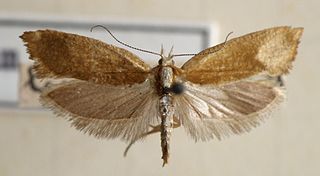
Ypsolopha lucella is a moth of the family Ypsolophidae. It is found in Europe and Near East.
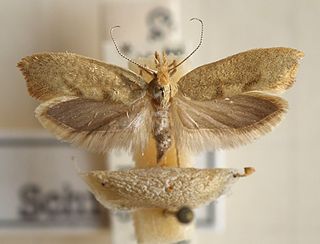
Ypsolopha alpella is a moth of the family Ypsolophidae. It is found in southern and central Europe and Siberia.
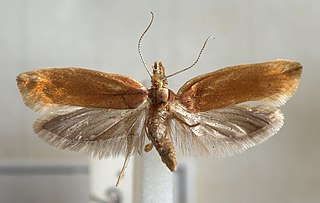
Ypsolopha ustella, the variable ypsolopha moth, is a moth of the family Ypsolophidae. It is found in most of Europe and is also present in North America.
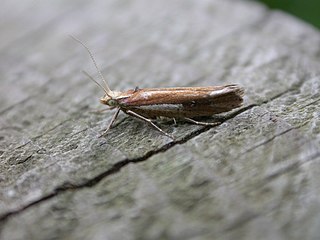
Ypsolopha parenthesella is a moth of the family Ypsolophidae. It is found from Europe to Japan, as well as north-eastern China, Asia Minor and mideast Asia.
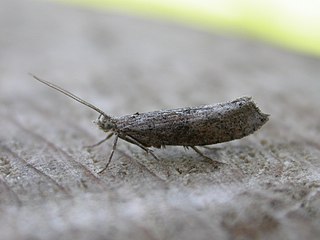
Ypsolopha horridella is a moth of the family Ypsolophidae. It is found in northern and central Europe, the Middle East, China and Russia.

Ypsolopha canariella, the canary ypsolopha moth, is a moth of the family Ypsolophidae. The species was first described by Lord Walsingham in 1881. It is found throughout North America from sea level up to elevations of 1,830 meters. In Canada it occurs in most provinces, from British Columbia and Alberta to Ontario. It is present in most of the continental United States. It is known from a wide variety of habitats, including mixed wood forests, semi-arid scrubland, prairies and badlands.

Ypsolopha blandella is a moth of the family Ypsolophidae. It has been recorded from Amur Oblast in Russia, and from Estonia, Latvia, Spain, Japan, Korea and China.
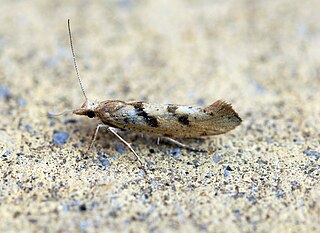
Ypsolopha sylvella is a moth of the family Ypsolophidae. It is found in most of Europe.

Ypsolopha falcella is a moth of the family Ypsolophidae. It is known from northern and central Europe and Russia.
Ypsolopha acuminata is a moth of the family Ypsolophidae. It is known from Japan, Korea, north-eastern China and Russia.
Ypsolopha tsugae is a moth of the family Ypsolophidae. It is known from Japan and Russia.
Ypsolopha parallela is a moth of the family Ypsolophidae. It is known from Japan, Korea, China and Russia.

Ypsolopha is a genus of moths of the family Ypsolophidae. It is the type genus of the family and comprises over 120 described species.

Hundsheimer Berg is a nature reserve in the Austrian municipalities of Hundsheim and Hainburg an der Donau in the province of Lower Austria located on the slopes of the Hundsheimer Berg. Half of the reserve is owned by WWF Austria with the other half being owned by the municipality of Hundsheim. The Hundsheimer Berg is for example used for excursions by the University of Vienna.














